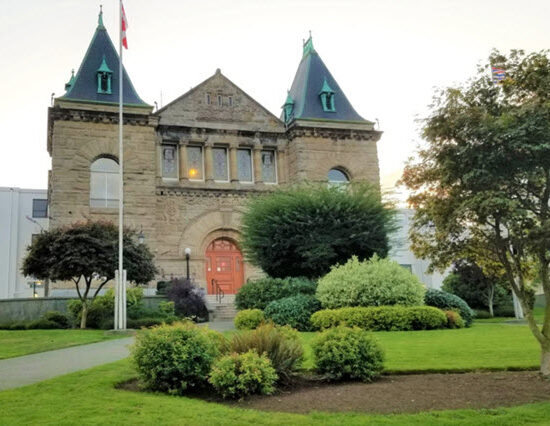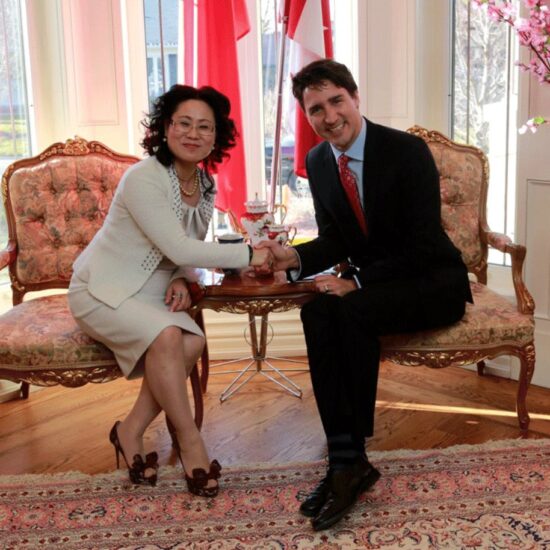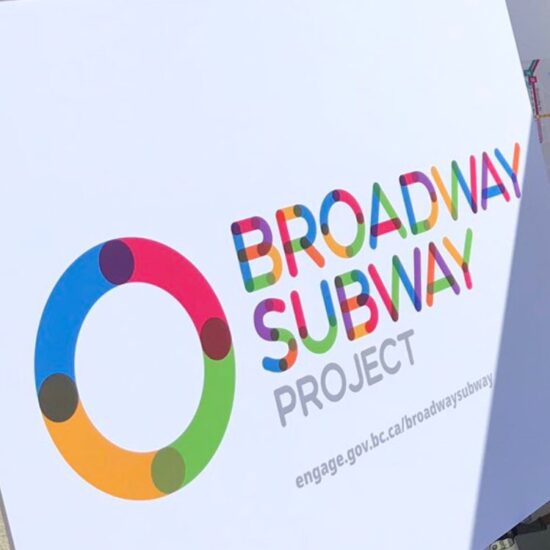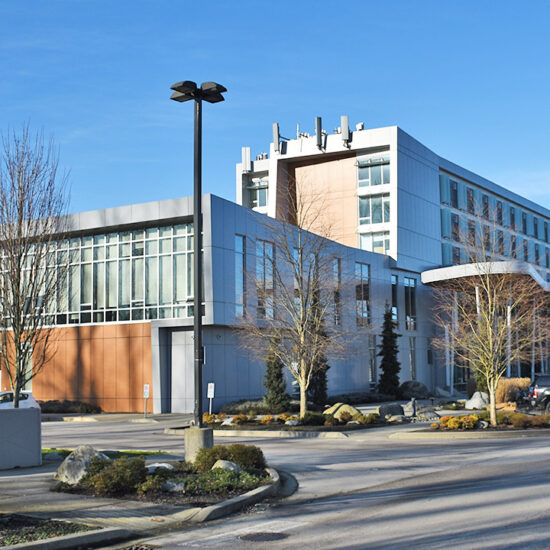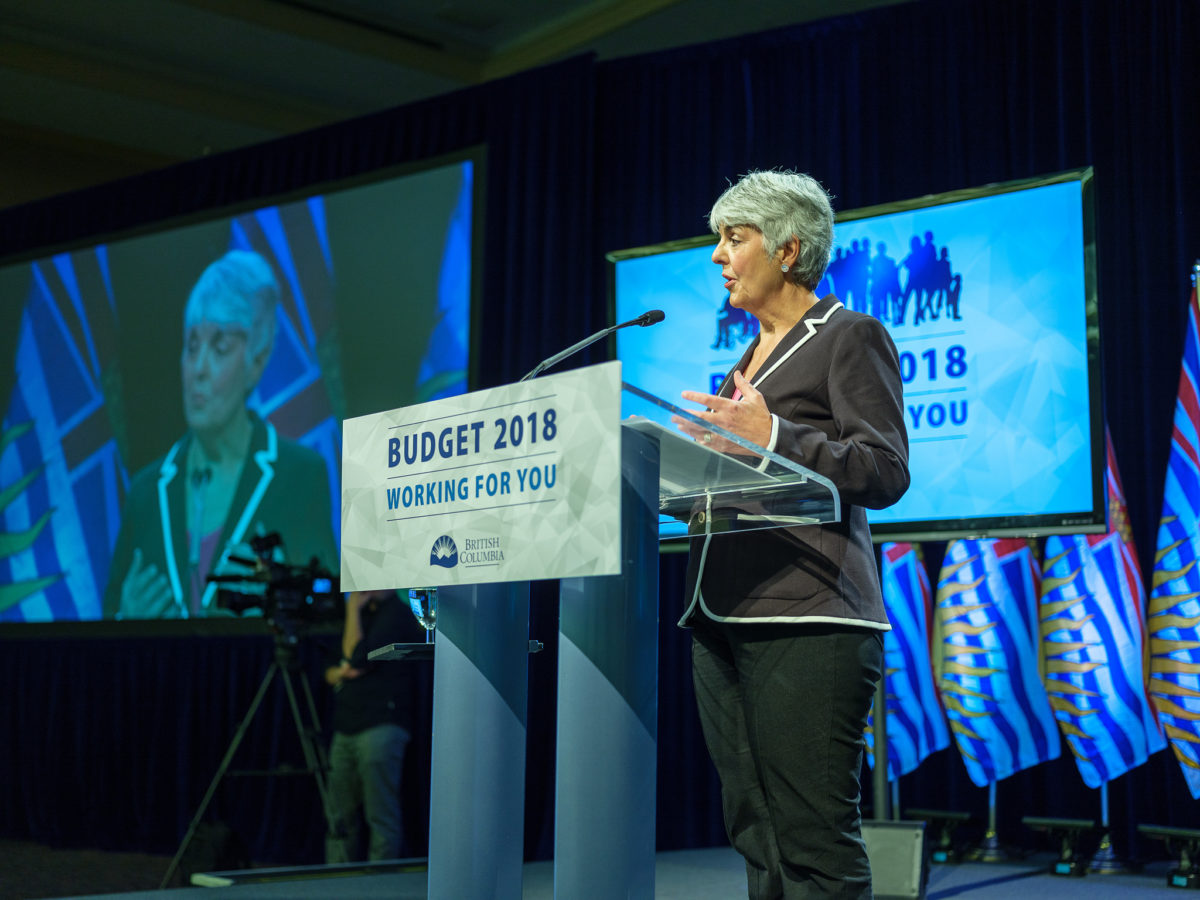
Bob Mackin
Last September’s British Columbia budget update came with an asterisk.
The NDP government had to table a budget bill or the government would’ve shut down, so it didn’t include many of John Horgan’s key promises. It looked an awful lot like the pre-election BC Liberal budget. The Horgan Horde had only been in office for about seven weeks.
Now they’ve been in office for seven months, and the Feb. 20 edition was the first step at putting an orange stamp on government. No, it doesn’t include all the promises, but it ticks many boxes. Like any budget, it will also tick some people off.
Here is what caught theBreaker’s eye.
- Finance Minister Carole James revealed that the government will crack down on tax fraud related to the real estate industry, by collecting information on presale condominium assignments and mandating a new beneficial ownership registry.
Beneficial ownership will be declared on the Property Transfer Tax form and entered into a registry that will be made public through the Land Title Survey Authority. Laws will be amended to require corporations to hold their beneficial ownership information; how and when that will be publicly available is up to negotiations brokered by the federal government.
Transparency International flagged the use of numbered companies and nominees as an epidemic of fraud and tax evasion. It’s 2016 No Reason To Hide report lobbied for a public beneficial ownership registry.
- The 15% foreign buyers’ tax in Metro Vancouver goes to 20% at midnight and expands to the Fraser Valley, Central Okanagan, Nanaimo and Victoria regions. A new tax on real estate speculation is coming, at $5 per $1,000 assessed value, to rise to $20 per $1,000 a year in 2019. “Primary residences and long term rentals will generally be exempt,” said the budget presentation. “Satellite families will be captured by the tax.”
The 10% provincial sales tax luxury surtax on passenger vehicles over $125,000 will increase April 1 to 15% on vehicles worth $125,000 and up. It’ll double to 20% for cars and SUVs worth $150,000 or more.
New taxes on houses and cars announced during the first week of the Year of the Dog, when there is likely an uptick in 10-Year Visa visitors from China to B.C.? A gutsy move.
- Despite money laundering in casinos intersecting with real estate and the illegal drug trade, the new B.C. budget allots less than $100,000 more for the Gaming Policy and Enforcement Branch in 2018-2019. Its budget remains less than $20 million.
Meanwhile, policing and security will be cut by $5 million, from $400.6 million to $395.06 million.
- B.C. Lottery Corporation’s annual service plan, also released on budget day, contemplates a $64 million dip in net income next year, partially from measures to crack down on money laundering at casinos.
“The decrease in fiscal 2018/19 net income reflects the assumption that BCLC’s casino business will experience an impact due to potential changes in anti-money laundering requirements, in combination with making necessary investments to ensure the long-term health of the overall business,” says the service plan.
Potential changes in anti-money laundering requirements, according to a sensitivity analysis, could mean the pendulum will swing $25 million to the black or $28 million to the red.
- The BC Liberals’ $700 million, three-year BC Home second mortgage loan program, a campaign gimmick announced in December 2016, will be cancelled March 31. It will cost $10 million a year to wind down for the next three years. All existing loans and accepted applications will be grandfathered. The money left in the budget will help create the new BC HousingHub office at BC Housing to connect private sector and non-profit agencies to create more affordable housing.
“A review undertaken by BC Housing concluded that the program has helped far fewer first time home buyers than originally projected and had a minimal impact on housing affordability,” said the service plan for the Municipal Affairs and Housing ministry.
- The budget did not include the NDP’s promised $10-a-day daycare or $400 renters’ rebate. James said both are long-term goals, but some programs in this budget will help families needing daycare and renters. The government is spending $214 million on the subsidized bus pass program for 100,000 people on disability assistance, a program eliminated in 2016 by the BC Liberals. Seniors will ride BC Ferries for free again Mondays to Thursdays.
- Pot could be worth $50 million to government coffers when weed is legalized this summer. Liquor Distribution Branch is preparing to move to a leased warehouse this summer in Delta, a $57 million move expected to increase efficiency. The impact on liquor sales from the legalization of recreational marijuana is not known. The NDP government declared LDB the monopoly distributor for the province last December.
“With this major project underway, there could be an impact on the LDB’s liquor related priorities in the near term.”
LDB is also waiting for the Supreme Court of Canada to decide the Comeau case, about personal importation limits for taking liquor across provincial borders. Negotiations for the North American Free Trade Agreement and the World Trade Organization challenge of protectionist B.C. wine sections in grocery stores could impact LDB.
- There is nothing in the budget for the proposed Broadway Subway or the Surrey LRT projects; money has been committed for the Pattullo Bridge replacement, which was announced last Friday.
- Full-time equivalent staffing in the central government is expected to increase by 500 to 29,400 next year. More staff will be hired to handle childcare and housing spending, as well as sheriffs, court services staff, social assistance services and conservation officers.
“The projected increase in FTEs is also explained in part by new staffing to support activities related to cannabis legalization, enhanced support for workers and employers in matters related to WorkSafeBC, wildfire recovery efforts, land use planning and environmental management.”








